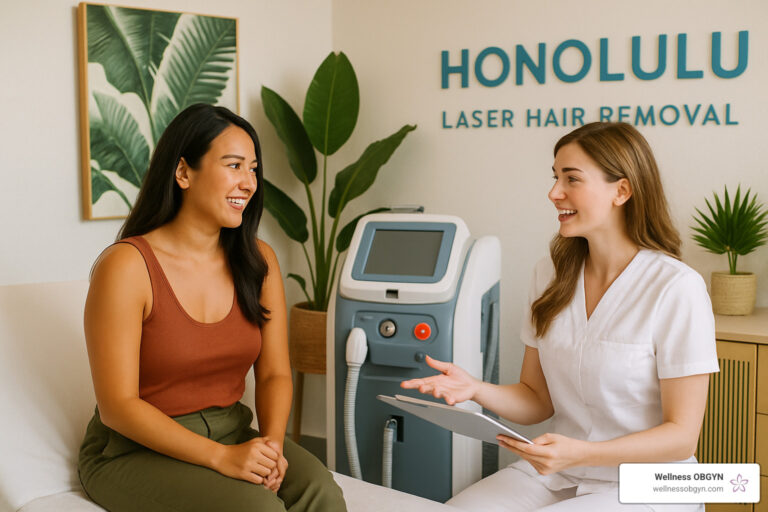Most Important Health Screenings for Women Over 40
As women reach their 40s, their bodies start going through many changes. This is a crucial time to focus on health and prevention because some risks for certain diseases increase with age. Regular health screenings can help catch problems early, when they are easier to treat. Knowing which screenings are most important for women over 40 can make a big difference in living a long and healthy life.
In this article, we’ll explore the key health screenings women over 40 should consider, why they matter, and how often they should be done. We will also answer common questions to help you take charge of your health with confidence.
Why Are Health Screenings Important After 40?
Turning 40 often marks a shift in health priorities. Hormonal changes, lifestyle factors, and aging itself increase the risk of certain illnesses like heart disease, cancer, osteoporosis, and diabetes. Many of these conditions don’t show clear symptoms in the early stages, so screening tests are essential to find and address them early.
Early detection through screenings means treatment can be started sooner, improving outcomes and sometimes even saving lives. Plus, screenings can also provide peace of mind, helping women make informed choices about their health.
Key Health Screenings for Women Over 40
Here are the most important health screenings every woman over 40 should discuss with her healthcare provider:
1. Mammogram (Breast Cancer Screening)
Breast cancer risk increases as women age, making mammograms one of the most critical screenings after 40. Mammograms use low-dose X-rays to detect lumps or abnormalities in breast tissue before they can be felt.
Recommendation: Most guidelines suggest women start getting mammograms yearly or every two years beginning at age 40. However, women with a family history of breast cancer or other risk factors might need to start earlier or have additional tests like MRI.
2. Pap Smear and HPV Test (Cervical Cancer Screening)
Cervical cancer screening involves a Pap smear, which checks for abnormal cells on the cervix, and the HPV test, which looks for the human papillomavirus linked to cervical cancer.
Recommendation: Women aged 30 to 65 should have a Pap smear combined with HPV testing every five years, or a Pap smear alone every three years if HPV testing isn’t done. After 65, screenings might stop if previous results have been normal.
3. Blood Pressure Check
High blood pressure is called the “silent killer” because it often shows no symptoms but greatly increases the risk of heart disease and stroke.
Recommendation: Women over 40 should have their blood pressure checked at least once every year. If readings are high, more frequent monitoring and lifestyle changes or medication may be needed.
4. Cholesterol Test
High cholesterol levels can clog arteries, increasing heart attack and stroke risk. This test measures total cholesterol, LDL (bad cholesterol), HDL (good cholesterol), and triglycerides.
Recommendation: A fasting lipid panel is typically recommended every 4 to 6 years for women over 40, but more often if there are risk factors like diabetes, obesity, or family history of heart disease.
5. Blood Glucose Test (Diabetes Screening)
Type 2 diabetes risk increases with age and weight. Screening for high blood sugar can catch prediabetes or diabetes early.
Recommendation: Women over 40 should have their blood glucose tested every 3 years, especially if overweight, inactive, or with a family history of diabetes.
6. Bone Density Test (Osteoporosis Screening)
Osteoporosis, which causes bones to become weak and fragile, affects many women after menopause due to lower estrogen levels.
Recommendation: Women aged 65 and older should have a bone density test. For women younger than 65 with risk factors (like family history, smoking, or low body weight), testing may begin earlier.
7. Colon Cancer Screening
Colon cancer risk increases with age, but it can be caught early with screening tests like colonoscopy, stool tests, or sigmoidoscopy.
Recommendation: Starting at age 45, women should begin regular colon cancer screening, with the frequency depending on the type of test used and personal risk factors.
Lifestyle and Mental Health Screenings
In addition to physical health tests, mental health is also critical. Depression and anxiety screenings can help identify issues early so that women can get support.
Also, lifestyle factors like diet, exercise, smoking, and alcohol use should be discussed regularly with a healthcare provider to prevent chronic diseases.
How to Prepare for Your Health Screenings
- Schedule regular check-ups: Don’t wait until you feel sick to see your doctor.
- Know your family history: Share this information with your healthcare provider.
- Stay informed: Ask questions about each screening’s purpose and schedule.
- Maintain healthy habits: Exercise, balanced diet, and quitting smoking improve test results and overall health.
Conclusion
For women over 40, staying on top of health screenings is a powerful way to protect your health and catch problems early. Mammograms, Pap smears, blood pressure checks, cholesterol, blood glucose, bone density, and colon cancer screenings are some of the key tests you should know about. Regular visits to your healthcare provider and an open conversation about your risks and concerns can help tailor the right screening plan for you.
Remember, prevention and early detection are your best tools for a healthy future!
Frequently Asked Questions (FAQs)
1. At what age should women start getting mammograms?
Most experts recommend starting mammograms at age 40 for women at average risk, with yearly or every two-year screenings.
2. How often should I get a Pap smear after 40?
Women aged 30 to 65 should have a Pap smear combined with HPV testing every five years or a Pap smear alone every three years if HPV testing is not done.
3. What lifestyle changes can reduce the risk of high blood pressure?
Eating a balanced diet low in salt, exercising regularly, maintaining a healthy weight, managing stress, and avoiding smoking can help control blood pressure.
4. When should I get tested for osteoporosis?
Women 65 and older should get a bone density test. Women under 65 with risk factors should talk to their doctor about earlier screening.
5. Is colon cancer screening necessary if I feel fine?
Yes. Colon cancer often shows no symptoms early on, so screening starting at age 45 is important to detect any problems early.






